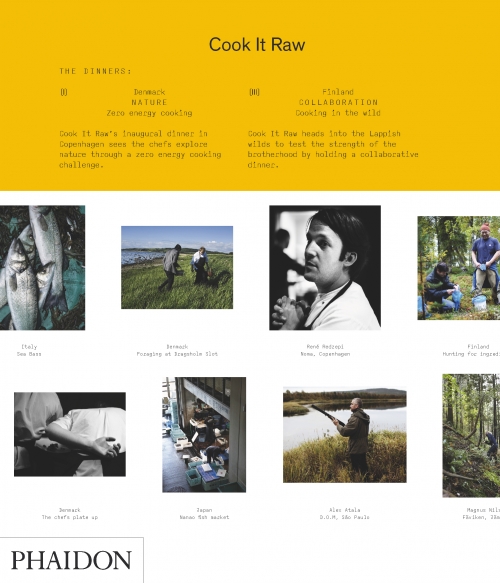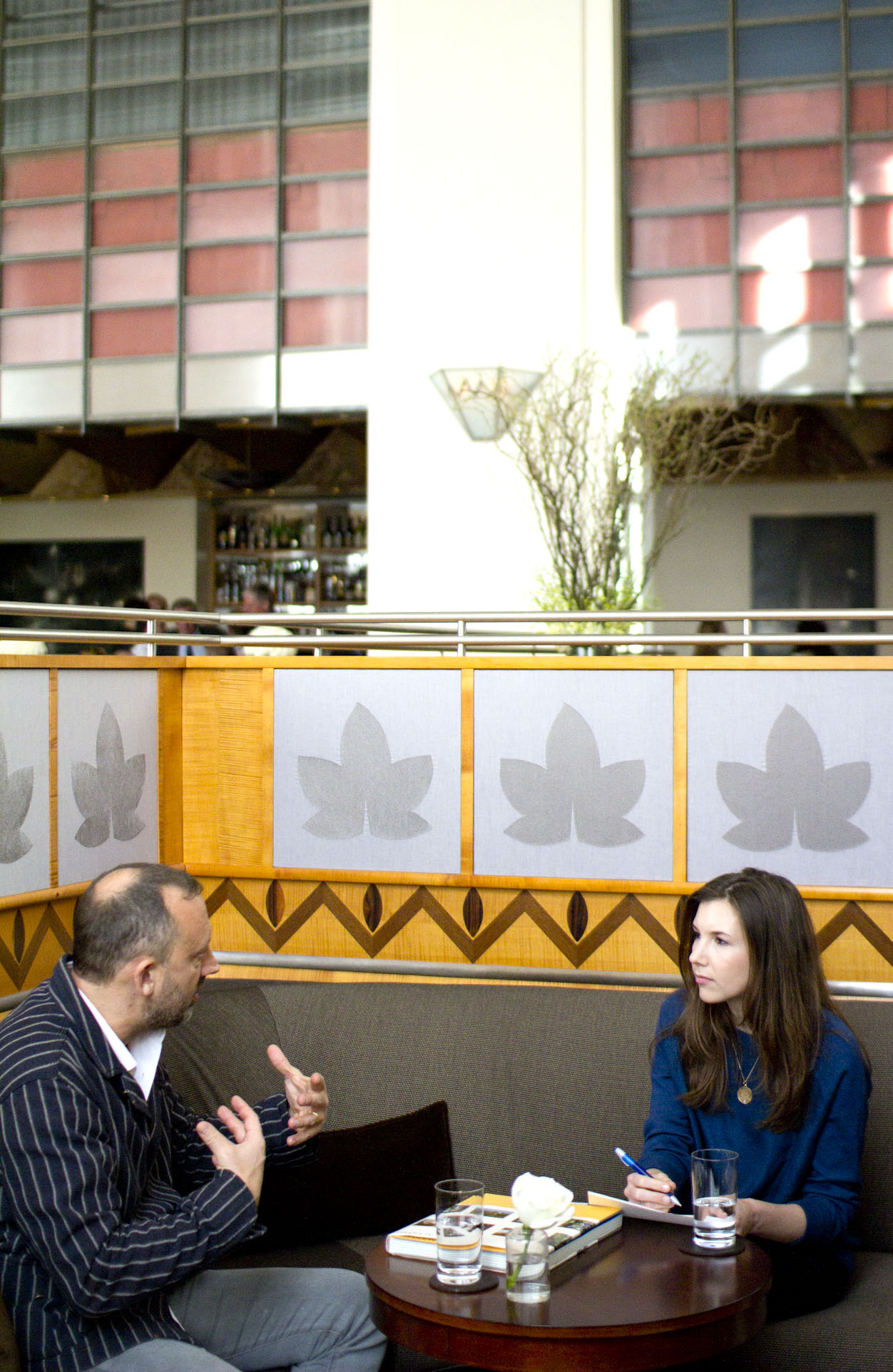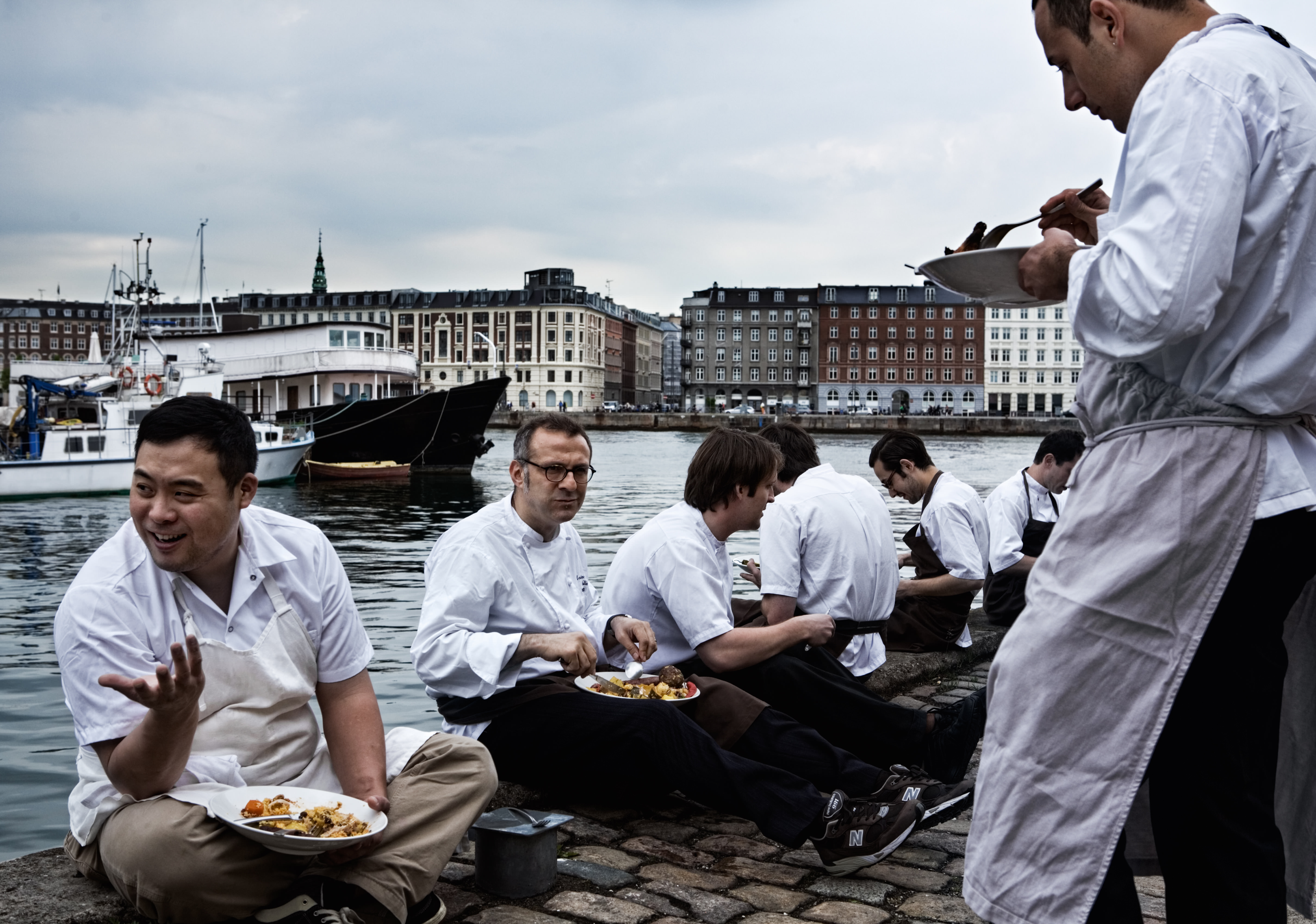

Cook It Raw, the annual gathering where today's most innovative and avant-garde chefs explore environmental, cultural and social issues through gastronomy might be the world's most talked about, yet simultaneously off-the-record, culinary event. That is until now.
Cook It Raw co-founder Alessandro Porcelli has edited a book (Phaidon, $49.95) of essays by the chefs, images of the inventive dishes they made from locally foraged or hunted ingredients, and remarks by the journalists fortunate enough to tag along to the remote corners of the world. This book will change the way you relate to food one dish at a time.
Recently I sat down with Porcelli to discuss the inspiration behind Cook It Raw as an event, the book, and hopes for where the gathering is headed in the future.

Photographed by Natalie Baxter
Louise McCready Hart: How did Cook It Raw begin?
Alessandro Porcelli: In 2007, I organized an event for Noma called Looking North where we presented raw materials from the Nordic region to world-renowned chefs and international journalists because they teased us at food conferences, "What is food from the north? Frozen peas and open sandwiches?" We had one lunch and one dinner. It was fun, we proved them wrong, and I started to realize the importance of creating these intimate gatherings.
Around the same time, we were trying to find unique producers around the countryside. In 2006, I had the idea of a book where we would portray the faces behind the raw materials and ingredients. I researched who was doing what and in what area and came up with a lot of different producers, small breweries, etc. I thought of organizing gastronomical tours to bring tourists to Copenhagen and then out to the countryside throughout the Nordic region to meet a biodynamic farmer who can explain how the biodynamic philosophy works, teach them how to make their own beer, or to forage, depending on the season, for mushrooms or wild plants on the shore.
After working for the government, I organized two very big food events in Copenhagen where high-end chefs prepared a small sample of food. 3,000 people came. With the climate summit coming in 2009, the government asked me to do an event that would link environmental issues with food. After months and months of thinking, I had the epiphany of Cook It Raw as a way to look into the future of food. We asked chefs to come and make extraordinary dishes with as little energy as possible.
LMH: Do you have a favorite memory or dish from a Cook It Raw event?
AP: The first love is always the strongest one because that is where the whole thing started. Bringing such talented avant-garde chefs together could have been a disaster, a clash of equals, but it worked so well. I saw the potential of creating a cultural bridge between the urban chef and the rural producer and it's become one of the mantras of Cook It Raw. Bringing together traditional hunters, fishermen and artisans from fairly unknown areas and getting the chefs to look at those raw materials, talk to these people, learn from that in an environment where they feel comfortable and protected so they can fail and learn is amazing.
LMH: Where will the next one be held?
AP: I would really like to do it in the southern states in the U.S. I'd love to put the chefs on a bus, discuss issues and do pit stops along the journey, cooking street food using locally sourced raw materials and ingredients. Now that we have the four principals -- the environment and nature, creativity, collaboration, and tradition -- that are the most important for us, we can go into a country and say this is what we believe, let's go investigate, let's go explore. In this country, we are teaming up with America Food Day at the end of October and with the Southern Food Alliance.
LMH: What was the goal of the book?
AP: One of my concerns with Cook It Raw is that is a very intimate gathering of chefs. How can this experience reach a larger audience? How can it trickle down to the public? The main reason why we wrote the book was to reach out. It also gave me the time to reflect on what we've been doing because I've been so busy organizing the event we just developed organically.
This book was difficult because we didn't know how to structure it. It's a cookbook without recipes, made by a lot of chefs in and from different countries. We wanted to create something unique. But hopefully, the structure of Cook It Raw is pretty clear in the book -- I prepare the grounds for these guys to come, give them tools to explore the land, they come, they explore it, they meditate and they curate. Each one of the dishes is an ode to the country where we've been. This is very, very important because the dishes were never done before and will never maybe be done again. Also, the inspiration that these chefs and the people in the rural areas get from this interaction is quite unique so I would like to see this flourish more and more among other groups. Hopefully that will happen.
